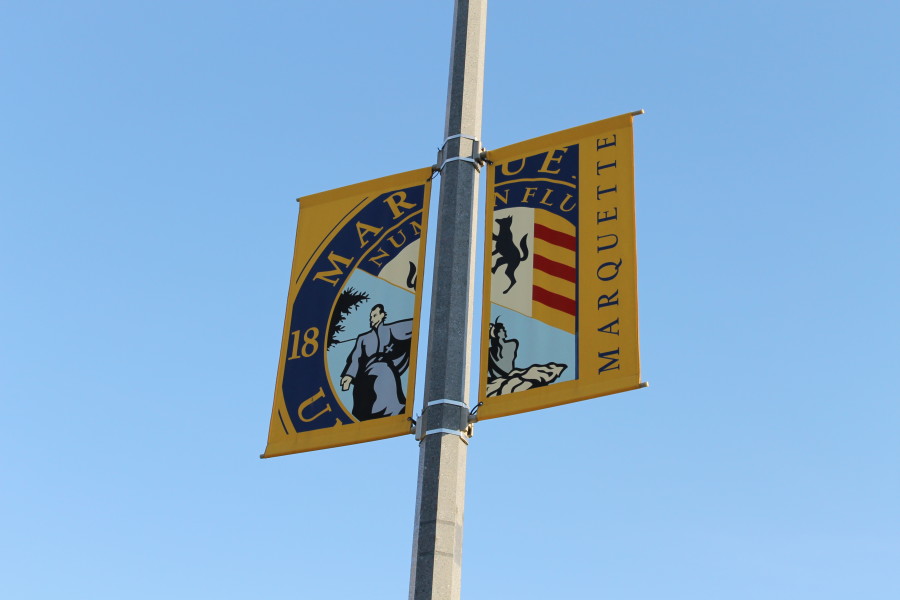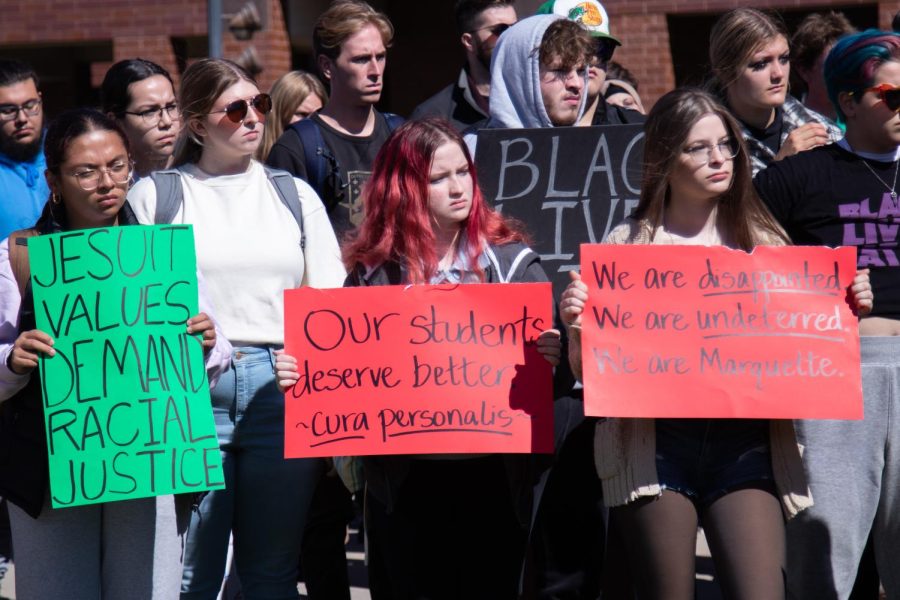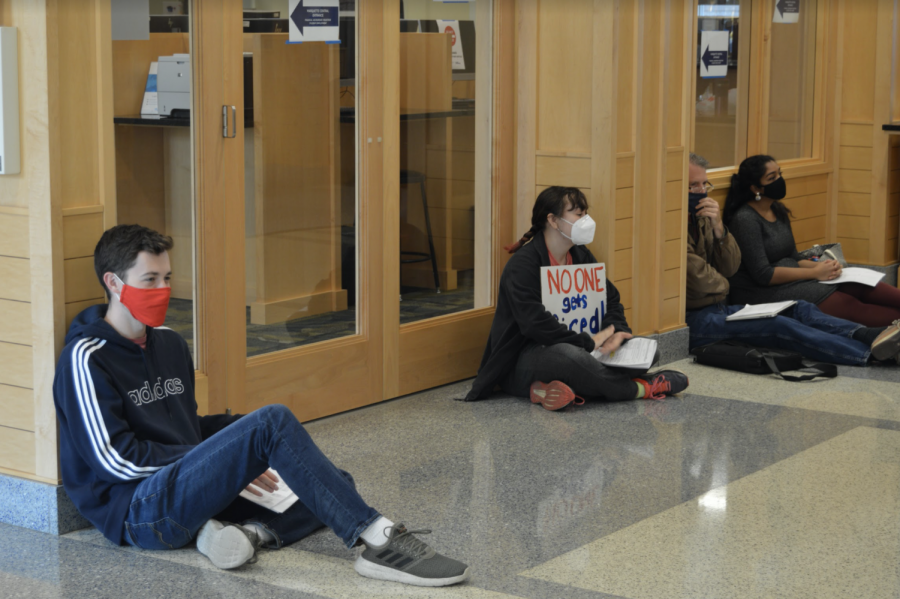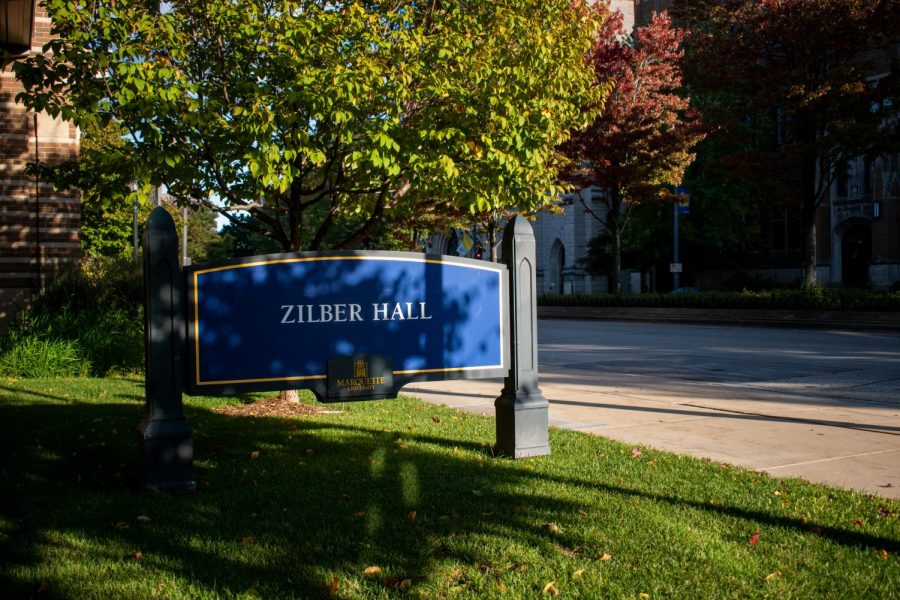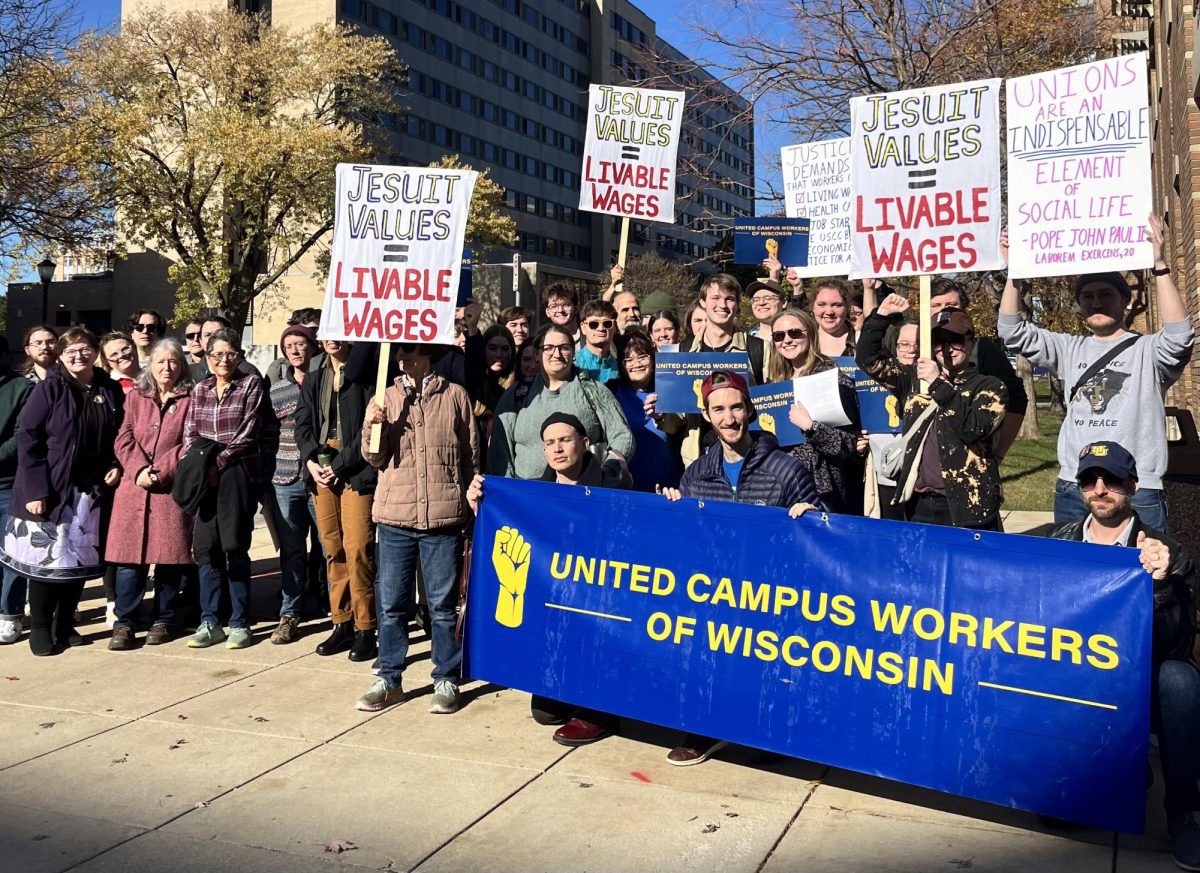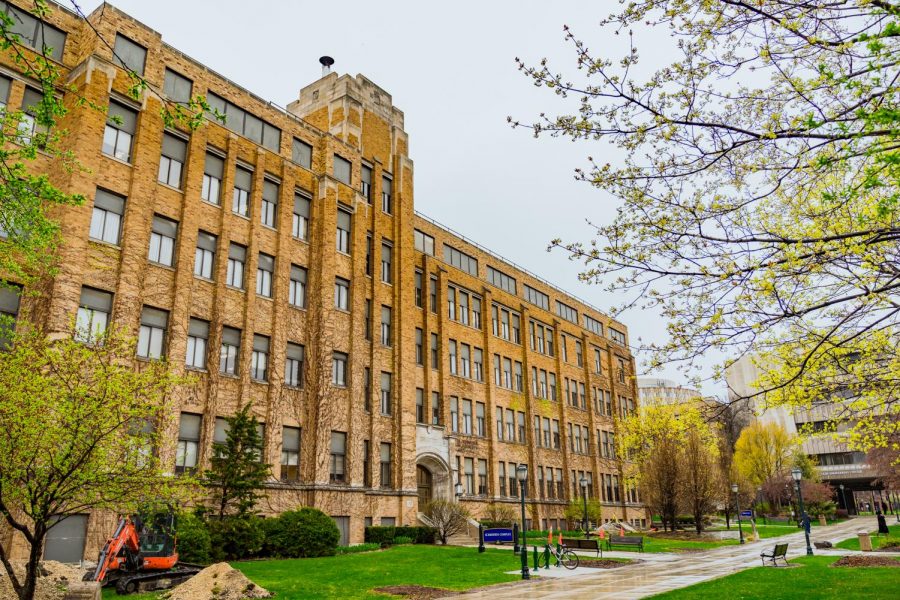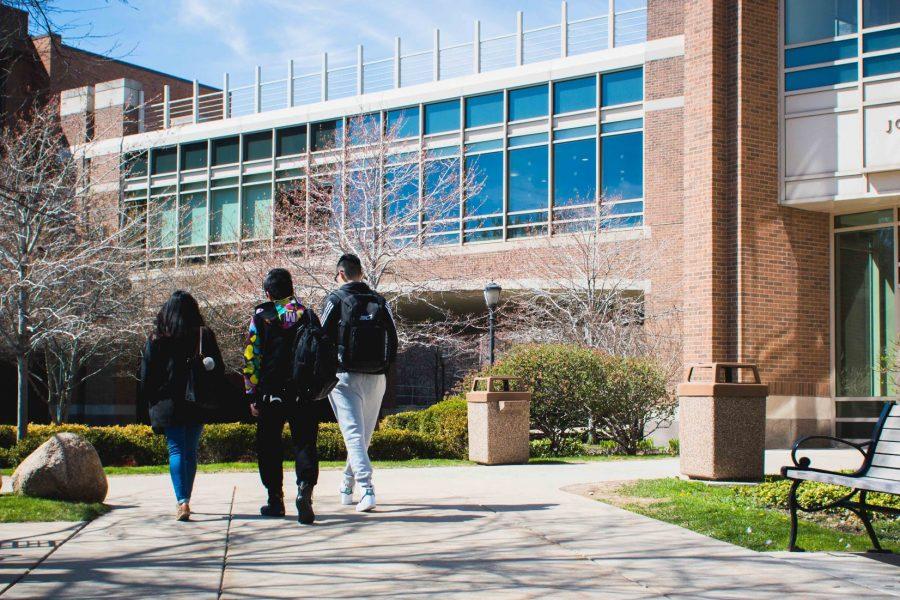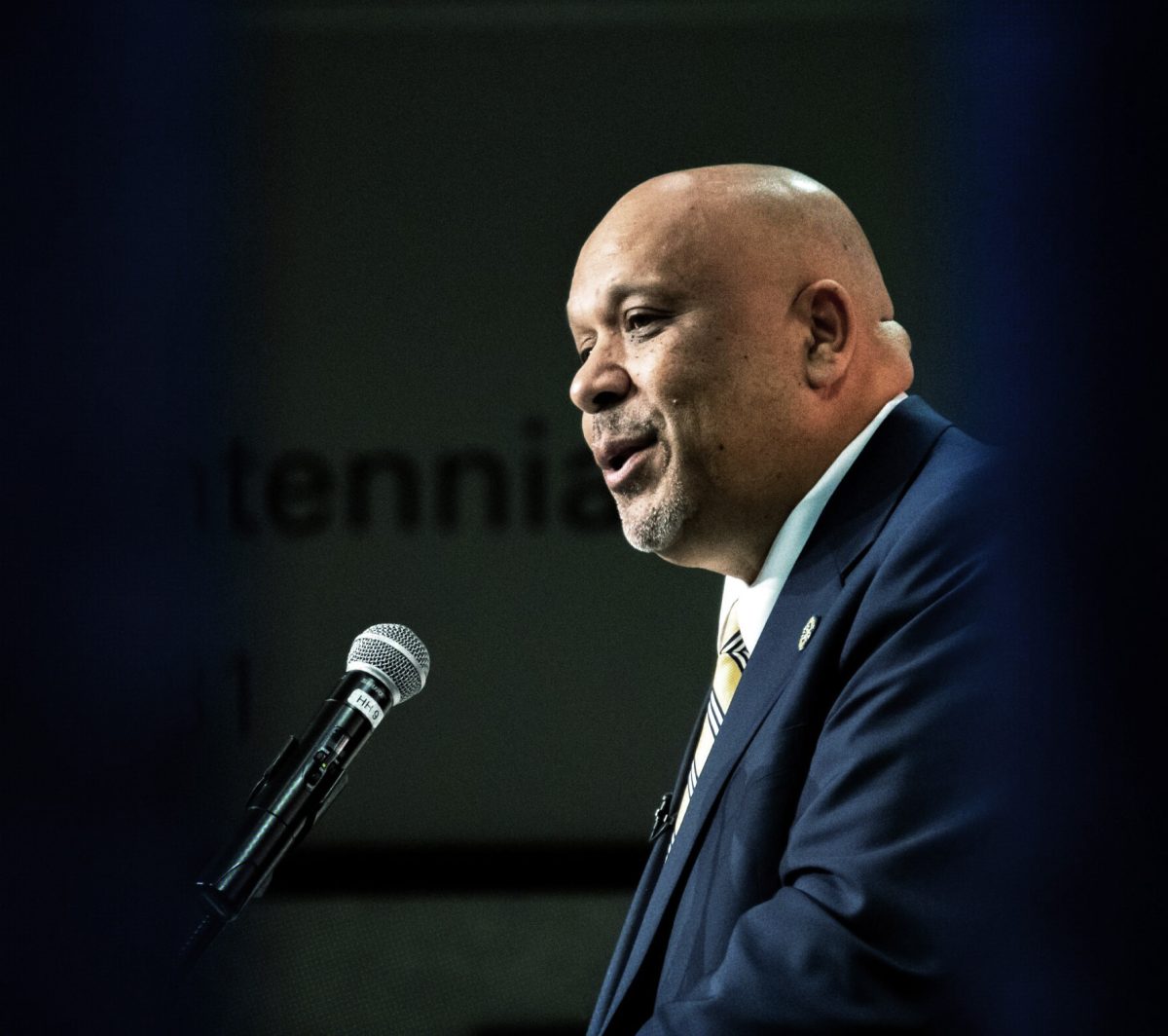The university limited free speech, eroded trust with the campus community and neglected transparency in recent weeks.
It all comes down to one policy.
The policy regulates demonstrations on Marquette’s campus. It outlines an approval process for students, faculty and staff that must be followed before holding demonstrations. The university’s approval protocol is unclear and the policy is poorly worded, leaving room for confusion and differing interpretations.
While Marquette administrators claim students, faculty and staff do not need permission to protest in the Alumni Memorial Union, the university’s policy claims that approval is necessary for space reservations and designated organizers prior to demonstrations.
In other words, a demonstration in the AMU would not be permitted without university approval. Protests in other spaces on campus need written approval from the university, according to the policy.
The words of administrators do not match the words on policy pages.
The Marquette Wire interviewed five different attorneys who independently reached the same conclusion: People need permission to protest on campus, even in the AMU.
This move to narrow messages on campus is a step in the wrong direction. Educational institutions should serve as breeding grounds for diverse ideas, not places where university administrators can silence certain opinions.
Despite the obviousness of the policy’s limitations, the university administration continues to mislead community members with its contradictory messages.
“In no way does this policy limit what demonstrators can say,” acting provost Kimo Ah Yun wrote to faculty and staff in an email Thursday. “In alignment with our Guiding Values, the free exchange of ideas is central to our mission and daily life. That will never change.”
Regardless of whether the university’s intent is to limit ideas on campus, the policy provides the leniency and opportunity for university administrators to curb protestors.
Power can be easily abused. Marquette administrators are not immune to this tendency. The judiciousness that the policy grants to the university’s leaders should concern the entire campus community.
Mixed messaging and surface-level assurances by Marquette should not deter the community from pushing back on these limits to free speech. Not only is Marquette unclear with its demonstration protocol, but it largely shut out faculty, staff and students from the policy’s draft and approval process.
Ah Yun recently told the Wire that representatives from the Office of the Provost, the Office of Finance, the Office of the General Counsel and the Department of Human Resources review and approve university policies and procedures. He said he and senior vice president and chief operating officer Joel Pogodzinski determine final approval for policies.
This small group of top leaders consistently makes policy decisions without input from the larger campus community. When it comes to policies that directly affect the expression rights of faculty, staff and students, it is unacceptable for university leaders to make top-down decisions without consulting those affected.
The university’s future action on policies should rest on a foundation of collaboration and openness. Leaders shouldn’t hide behind veils of secrecy and authority.
The predominantly hidden revision process became abundantly clear as the Wire began to collect varying versions of the demonstration policy. In all, the Wire obtained four policy documents, two of which were updates of original policy documents. Each policy document had different effective dates: Aug. 16, Aug. 20, Aug. 27 and Aug. 28.
Each document contains varied information. Some of the documents contain information that is omitted in others. Wording also changes between the documents, which affects the policy’s meaning.
The changes appeared days apart without clear explanation. Rather than being honest about initial mistakes in the policy, the university sneakily removed an existing policy document and sent a new one to faculty and staff members. The university asked the Wire to issue a correction based on its reporting of the original policy, although the Wire’s reporting was accurate based on the original policy document.
But the document was no longer available online. The university removed it from the website.
The Wire’s PDF copy of the original policy allowed reporters to compare the various policy documents for changes. The ambiguous wording and numerous documents convoluted an already complex policy. It left many members of the community feeling confused and frustrated.
If Marquette truly values personal expression, it should refrain from limiting voices on campus through its policy content and approval processes. It should encourage feedback and criticism. It should take a serious look at its existing policies and procedures.
Without further considerations to the demonstration policy, students, staff and faculty will continue to feel unheard and disrespected.
It’s time to lift voices, not stifle them.

